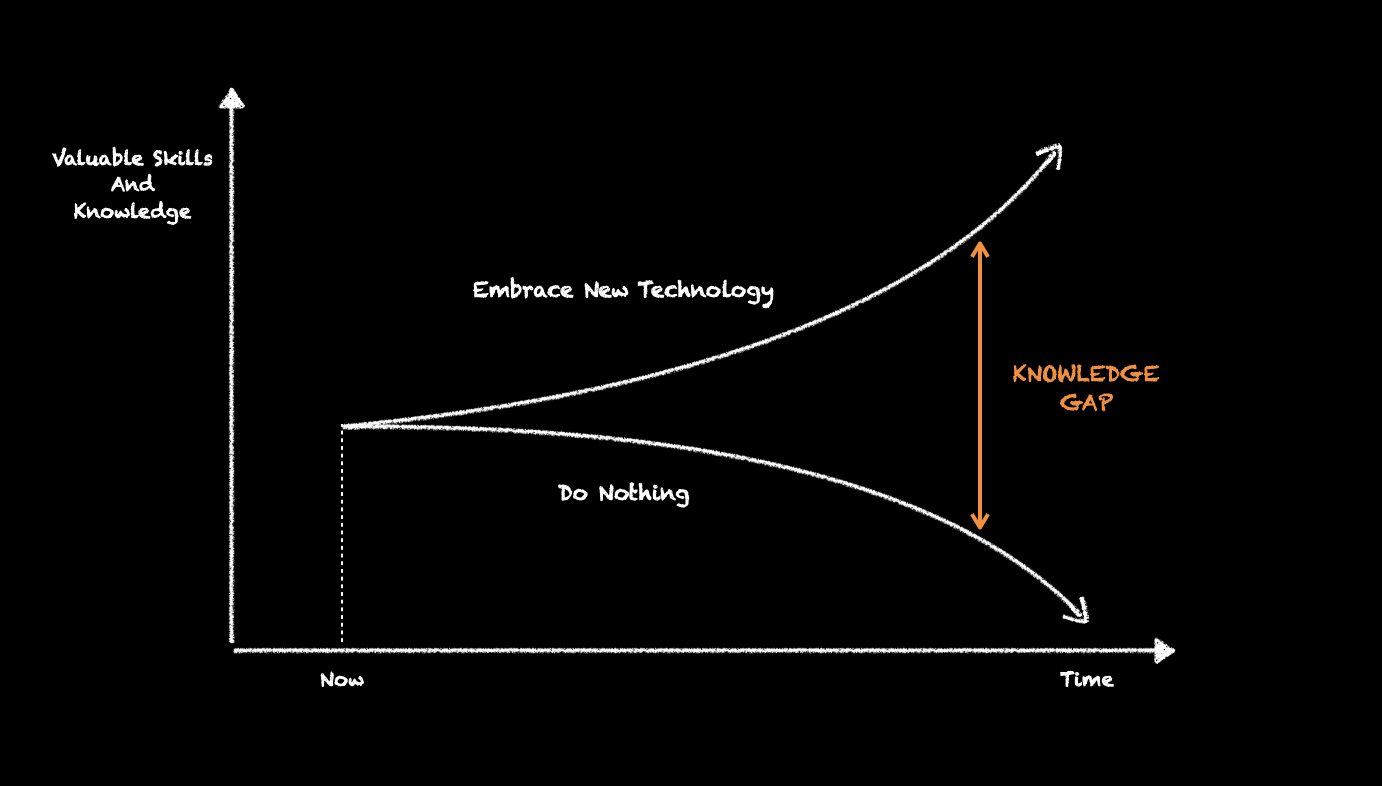The Less Informed Fall Behind
As a software developer, I can't help but feel the rapid acceleration of technological progress. Every day brings new breakthroughs, particularly in artificial intelligence. But what happens if I choose not to engage with these advancements?
I believe, ignoring these developments isn't just a missed opportunity; it's a significant mistake.
In the tech world, standing still is not an option. The relentless pace of change ensures that those who do not evolve are swiftly outpaced. The gap between the "smart" and the "not-so-smart" is widening.

This graphic highlights the widening gap in skills and knowledge over time. Embracing new technology leads to remarkable growth and future security, while doing nothing results in obsolescence. The choice is ours: evolve and thrive, or risk falling behind.
Rather than focusing on the drawbacks, let's shift our perspective to highlight the advantages. We can transform the idea into "The Smarts Get Smarter." Developers who stay updated with the latest advancements are continually building on their existing knowledge. They leverage new tools, techniques, and frameworks to solve problems more efficiently and effectively. This proactive learning approach leads to a compounding effect, where their expertise grows exponentially over time. Betting on progress in this way is undoubtedly a smart bet for any developer.
This dynamic is reminiscent of the economic principle “The Rich Get Richer,” where those who already have wealth can leverage their resources to generate even more wealth. Similarly, in the tech world, companies and individuals who are already at the forefront of technology have the means to advance even further. They invest in cutting-edge technologies, continuously enhance their skills, and in doing so, accrue more advantages and create a wider gap between themselves and those who lag behind.
For example, I remember a colleague who saw the potential of Amazon Web Services back in 2008 and decided to dive in. Despite the initial headaches - unstable instances, clunky interfaces, she persisted. She didn't conquer AWS overnight. Instead, she chipped away at it, bit by bit. One day she'd figure out how to keep an EC2 instance from crashing. The next, she'd write a script to automate deployments. Small wins accumulated into expertise. By the end, she became a sought-after expert in cloud computing.
My friend's AWS journey isn't just a success story—it's a wake-up call. Today, we're facing a similar pivotal moment with AI. Ignoring AI advancements isn't just missing out; it's setting yourself up for obsolescence.
But here's the good news: you don't have to become an AI expert overnight. Start small by familiarizing yourself with basic AI concepts and experimenting with simple projects, gradually building your proficiency to stay ahead in the ever-evolving tech landscape.